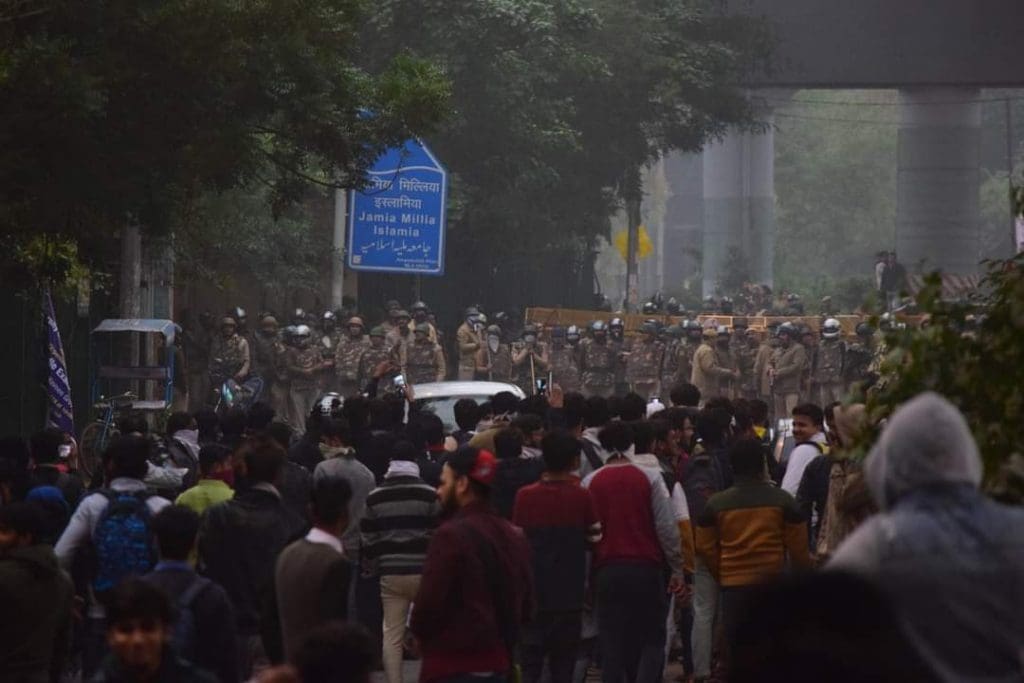
I am a young lawyer having recently joined the profession, is in the process of understanding the depth of law, the decorum of courts and nuances of litigation. However, one thing I have clarity about—or you may say I have been made to have clarity about—my identity. I am a Muslim—a visible Muslim.
I stepped into Karkardooma Court for the first time in March this year. A year after the North-East Delhi violence. North East Delhi, a district on the margins of the capital city —consisting mostly of a population that the main city, quite infamous for its snobbery, does not even want to recognise as its own. Delhi, which has once been Shahjahanabad, paradoxically has Muslims living on its margins and slums. The city, just like the whole country, does not accept them in the main quarters anymore—hence Okhlas and Seelumpurs become inevitable. Naturally, North East Delhi too has a considerable Muslim population.
Anyhow, last year in February, Delhi witnessed one of the worst communal violence in decades—the only other parallel being 1984 Anti-Sikh Violence. For the sake of clarity, no, I will not call it a “riot”. In the history of our country, seldom have there been “riots”—it’s a terminology to white wash the community that writes history for us. Just like most, what happened in Delhi—was an anti-Muslim violence, a pogrom. And I am not saying this metaphorically, statistically, out of the official data of the 53 persons killed, more than two-thirds were Muslims. But then, deaths are not just data or numbers. Not anybody’s thesis or a well-jargoned article. Deaths are trauma. Violence because of identities becomes communal trauma.
After bearing this trauma for one year, of questioning of whether to be a conspicuous Muslim in Delhi anymore, of not wanting to be associated with Delhi “riots” matters because of safety concerns, of avoiding the data, the reports consciously and of diminishing hope—I ended up in Karkardooma Court this year. The Court which is handling the Delhi “riots” matters.
The moment I left Metro to enter the Court premises, I could sense of stepping into a place which is surrounded by a Muslim population. The minute I entered the Court, what I witnessed was an unavoidable Muslim presence. Muslims in their common markers roaming here and there—the beard, the burqa, the hijab, the niqab, the topi, the kurta pajama—often looking helpless and under-privileged (could still not find the red-checked scarf and surma though, but that’s a story for another day). Outside the Courtroom, I saw our client, and likes of him, sitting patiently with old torn documents in a worn-out polythene bag, wearing broken glasses and slippers. For an average lawyer, I do not know how that sight must have looked given lawyers often are told “not to feel much” in this profession. However, for me as a young Muslim lawyer, it was different. He was not just “facts” for me—he was a person bearing my religious identity, bearing similar fears, loss and trauma but still standing there that day—not for justice. I am sure of it. But to tell the world that he was there. His community was there. The Muslims were there and they fought a decent fight. Because for marginalised communities, the ideas of justice taught in fancy lectures do not count.
Whenever I remind myself of this, my thoughts get clouded with questions—questions that I have consciously been seeking answers to for years—questions that are not answered in jurisprudence classes— as William Gaddis remarkably wrote ‘Justice? -You get justice in the next world, in this world you have the law.’—Is justice a hypothetical concept with all we have is “law”? Is this how systematic cleansing looks like? Courts, thana and government hospitals, is this what Muslims deserve?
But then I ask myself, how can these Muslims, who are on verge of a genocide, be this proud? How can they, having been slaughtered for their very identities in the National Capital just a year back, still decide to have a conspicuous identity? Who has taken out fear from them?
Whatever the reasons be, I am sure a community that is this resilient, that after being systematically put in the margins, that after having historically been failed by our sophisticated systems, stand in courts of law patiently waiting for justice—this community can never be wiped out—these Muslims can never be killed.
zulm phir zulm hai,
badhta hai to mit jaataa hai
Khoon phir khoon hai, tapkega to jam jaayega
Nabeela Jamil is a Delhi based lawyer.



